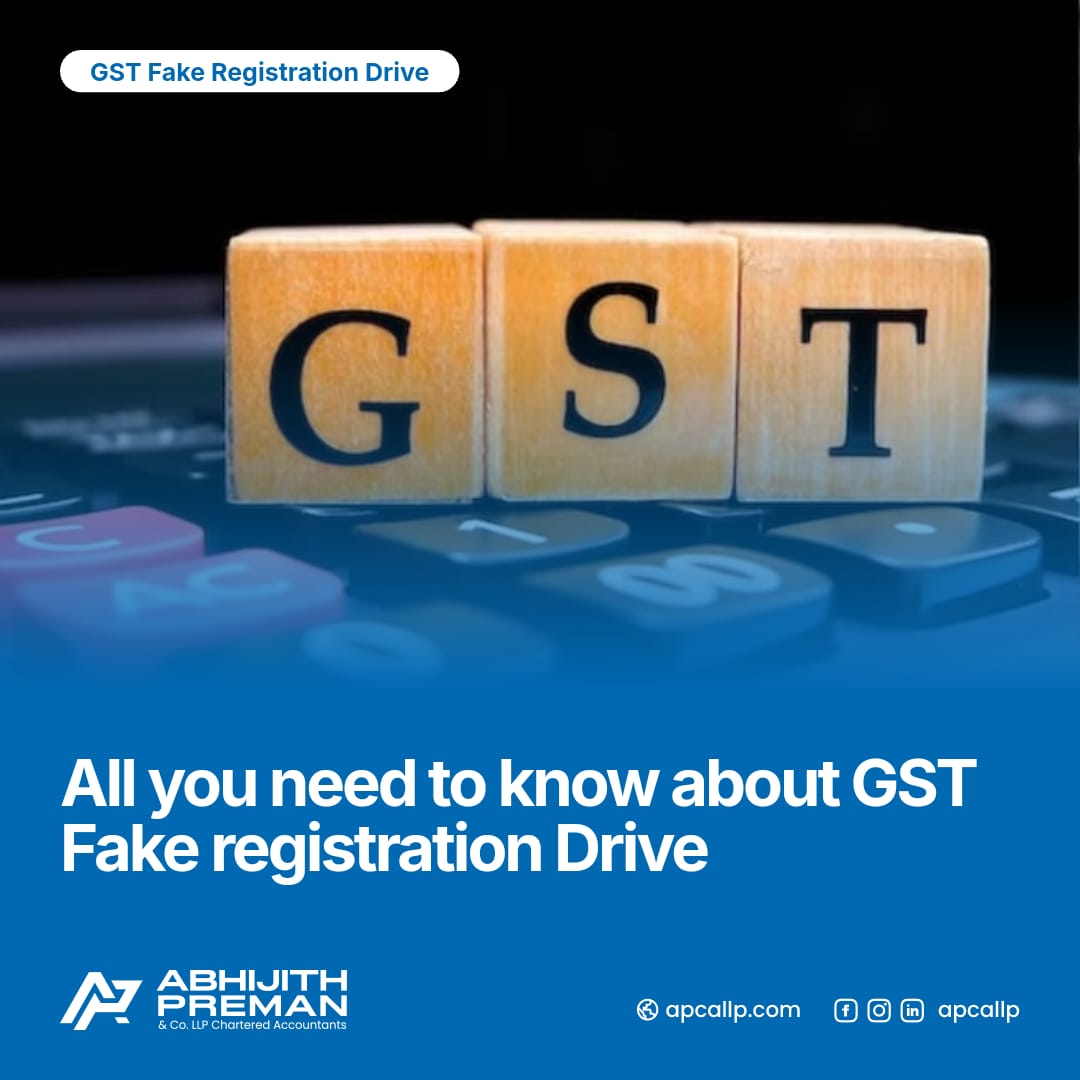
GST Fake Registration Drive: CBIC Launches 2-Month Crackdown
The Central Board of Indirect Taxes and Customs (CBIC) has embarked on an intensive two-month drive to combat the proliferation of fake GST registrations. This initiative, which started on August 16, 2024, reflects the government's growing concern over the rising number of fraudulent GST activities that threaten to undermine the integrity of India’s tax system.
The Growing Menace of Fake GST Registrations
The issue of fake GST registrations has been a persistent challenge since the introduction of the Goods and Services Tax (GST) in 2017. Fraudsters exploit loopholes in the system by creating fake entities to claim input tax credits (ITC) on fake invoices, thereby evading taxes and defrauding the exchequer. This malpractice not only results in significant revenue loss but also puts legitimate businesses at a disadvantage.
In recent years, the number of fake registrations has surged, prompting the CBIC to take stringent measures. The problem has been exacerbated by the increasing digitization of business operations, which, while improving efficiency, has also made it easier for unscrupulous elements to manipulate the system.
Key Objectives of the Crackdown
The two-month crackdown, which will run until mid-October 2024, has several key objectives. Firstly, the CBIC aims to identify and weed out entities with suspicious or non-existent business operations. By scrutinizing GST registrations that show unusual activity, such as high volumes of transactions without corresponding business activities, the board hopes to curtail the widespread abuse of the system.
Secondly, the drive aims to ensure that legitimate businesses are not unfairly targeted. The CBIC has assured that the crackdown will be data-driven, relying on advanced analytics and risk-based parameters to identify potential fraud. This approach minimizes the chances of genuine businesses being caught up in the net, ensuring that the focus remains on entities that pose a genuine threat to the system.
Steps Involved in the Drive
The CBIC has laid out a clear roadmap for the crackdown. The drive will involve a combination of physical inspections, verification of business premises, and scrutiny of GST returns. Tax officers have been empowered to conduct surprise checks and audits of businesses suspected of engaging in fraudulent activities.
Furthermore, the CBIC has introduced stricter norms for GST registration, including the mandatory submission of additional documents and verification of business premises before granting registration. These measures are expected to deter fraudsters from obtaining fake registrations in the first place.
In addition to these steps, the CBIC is also focusing on enhancing the use of technology in the fight against GST fraud. The board is leveraging artificial intelligence (AI) and machine learning (ML) to analyze transaction patterns and identify anomalies that may indicate fraudulent activity. This technological approach will enable the CBIC to act swiftly and decisively against entities involved in GST fraud.
Implications for Businesses
For legitimate businesses, the CBIC’s crackdown is both a challenge and an opportunity. On one hand, businesses must ensure that their GST compliance is impeccable to avoid being caught in the crossfire. This includes maintaining accurate records, filing timely returns, and ensuring that all transactions are transparent and legitimate.
On the other hand, the crackdown presents an opportunity for honest businesses to operate in a cleaner and more transparent marketplace. By rooting out fraud, the CBIC is helping to level the playing field, ensuring that businesses that comply with the law are not unfairly disadvantaged by those who do not.
Conclusion
The CBIC’s two-month crackdown on fake GST registrations is a crucial step in safeguarding the integrity of India’s tax system. While the drive may cause some disruptions, it is a necessary measure to ensure that the GST regime remains fair, transparent, and effective. As the crackdown unfolds, it is essential for businesses to stay vigilant and ensure that they remain compliant with all GST regulations.
